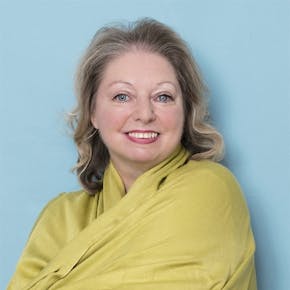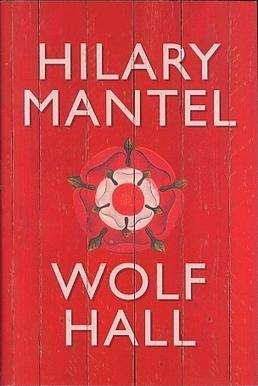Related Research Articles
The Booker Prize, formerly the Booker Prize for Fiction (1969–2001) and the Man Booker Prize (2002–2019), is a literary award conferred each year for the best novel written in the English language, which was published in the United Kingdom and Ireland. The winner of the Booker Prize receives international publicity that usually leads to a sales boost. When the prize was created, only novels written by Commonwealth, Irish, and South African citizens were eligible to receive the prize; in 2014, eligibility was widened to any English-language novel—a change that proved controversial.

The Baillie Gifford Prize for Non-Fiction, formerly the Samuel Johnson Prize, is an annual British book prize for the best non-fiction writing in the English language. It was founded in 1999 following the demise of the NCR Book Award. With its motto "All the best stories are true", the prize covers current affairs, history, politics, science, sport, travel, biography, autobiography and the arts. The competition is open to authors of any nationality whose work is published in the UK in English. The longlist, shortlist and winner is chosen by a panel of independent judges, which changes every year. Formerly named after English author and lexicographer Samuel Johnson, the award was renamed in 2015 after Baillie Gifford, an investment management firm and the primary sponsor. Since 2016, the annual dinner and awards ceremony has been sponsored by the Blavatnik Family Foundation.

The International Booker Prize is an international literary award hosted in the United Kingdom. The introduction of the International Prize to complement the Man Booker Prize was announced in June 2004. Sponsored by the Man Group, from 2005 until 2015 the award was given every two years to a living author of any nationality for a body of work published in English or generally available in English translation. It rewarded one author's "continued creativity, development and overall contribution to fiction on the world stage", and was a recognition of the writer's body of work rather than any one title.
The James Tait Black Memorial Prizes are literary prizes awarded for literature written in the English language. They, along with the Hawthornden Prize, are Britain's oldest literary awards. Based at the University of Edinburgh in Scotland, United Kingdom, the prizes were founded in 1919 by Janet Coats Black in memory of her late husband, James Tait Black, a partner in the publishing house of A & C Black Ltd. Prizes are awarded in three categories: Fiction, Biography and Drama.

Dame Hilary Mary Mantel was a British writer whose work includes historical fiction, personal memoirs and short stories. Her first published novel, Every Day Is Mother's Day, was released in 1985. She went on to write 12 novels, two collections of short stories, a personal memoir, and numerous articles and opinion pieces.

Adam Samuel James Foulds FRSL is a British novelist and poet.

Wolf Hall is a 2009 historical novel by English author Hilary Mantel, published by Fourth Estate, named after the Seymour family's seat of Wolfhall, or Wulfhall, in Wiltshire. Set in the period from 1500 to 1535, Wolf Hall is a sympathetic fictionalised biography documenting the rapid rise to power of Thomas Cromwell in the court of Henry VIII through to the death of Sir Thomas More. The novel won both the Booker Prize and the National Book Critics Circle Award. In 2012, The Observer named it as one of "The 10 best historical novels".

Summertime is a 2009 novel by South African-born Nobel laureate J. M. Coetzee. It is the third in a series of fictionalized memoirs by Coetzee and details the life of one John Coetzee from the perspective of five people who have known him. The novel largely takes place in the mid to late 1970s, largely in Cape Town, although there are also important scenes in more remote South African settings. While there are obvious similarities between the actual writer of the novel, J. M. Coetzee, and the subject of the novel, John Coetzee, there are some differences - most notably that the John Coetzee of the novel is reported as having died. Within the novel, the opinions and thoughts of the five people are compiled and interpreted by a fictitious biographer, who also adds fragments from John Coetzee's notebooks. It was shortlisted for the 2009 Booker Prize. Coetzee was already a two-time winner of the award and it is for this reason that literary commentator Merritt Moseley believes he did not win it for Summertime.
The Walter Scott Prize for historical fiction is a British literary award founded in 2010. At £25,000, it is one of the largest literary awards in the UK. The award was created by the Duke and Duchess of Buccleuch, whose ancestors were closely linked to Scottish author Sir Walter Scott, who is generally considered the originator of historical fiction with the novel Waverley in 1814.

NoViolet Bulawayo is the pen name of Elizabeth Zandile Tshele, a Zimbabwean author. In 2012, the National Book Foundation named her a "5 under 35" honoree. She was named one of the Top 100 most influential Africans by New African magazine in 2014. Her debut novel, We Need New Names, was shortlisted for the 2013 Booker Prize, and her second novel, Glory, was shortlisted for the 2022 Booker Prize, making her "the first Black African woman to appear on the Booker list twice".
Anuradha Roy is an Indian novelist, journalist and editor. She has written five novels: An Atlas of Impossible Longing (2008), The Folded Earth (2011), Sleeping on Jupiter (2015), All the Lives We Never Lived (2018), and The Earthspinner (2021).
The Desmond Elliott Prize is an annual award for the best debut novel written in English and published in the UK. The winning novel can be from any genre of fiction and must exhibit depth and breadth with a compelling narrative. The winner receives £10,000. The prize is named in honour of the distinguished late publisher and literary agent, Desmond Elliott.

Bring Up the Bodies is an historical novel by Hilary Mantel; sequel to the award-winning Wolf Hall; and part of a trilogy charting the rise and fall of Thomas Cromwell, the powerful minister in the court of King Henry VIII. It won the 2012 Booker Prize and the 2012 Costa Book of the Year. The final novel in the trilogy, The Mirror and the Light, was published in March 2020.
The 2012 Booker Prize for Fiction was awarded on 16 October 2012. A longlist of twelve titles was announced on 25 July, and these were narrowed down to a shortlist of six titles, announced on 11 September. The jury was chaired by Sir Peter Stothard, editor of the Times Literary Supplement, accompanied by literary critics Dinah Birch and Bharat Tandon, historian and biographer Amanda Foreman, and Dan Stevens, actor of Downton Abbey fame with a background English Literature studies. The jury was faced with the controversy of the 2011 jury, whose approach had been seen as overly populist. Whether or not as a response to this, the 2012 jury strongly emphasised the value of literary quality and linguistic innovation as criteria for inclusion.
The 2015 Booker Prize for Fiction was awarded at a ceremony on 13 October 2015. A longlist of thirteen titles was announced on 29 July, narrowed down to a shortlist of six titles on 15 September.
The 2011 Booker Prize for Fiction was awarded at a ceremony on 18 October 2011. The Man Booker longlist of 13 books was announced on 26 July, and was narrowed down to a shortlist of six on 6 September. The Man Booker Prize was awarded to Julian Barnes for The Sense of an Ending.

The 2020 Booker Prize for Fiction was announced on 19 November 2020. The Booker longlist of 13 books was announced on 27 July, and was narrowed down to a shortlist of six on 15 September. The Prize was awarded to Douglas Stuart for his debut novel, Shuggie Bain, receiving £50,000. Stuart is the second Scottish author to win the Booker Prize, after it was awarded to James Kelman for How Late It Was, How Late in 1994. The ceremony was hosted by John Wilson at the Roundhouse in Central London, and broadcast by the BBC. As a result of the COVID-19 pandemic, the shortlisted authors and guest speakers appeared virtually from their respective homes.
The Costa Book Award for Biography, formerly part of the Whitbread Book Awards (1971-2006), was an annual literary award for children's books, part of the Costa Book Awards. The award concluded in 2022.
References
- ↑ "Mantel named Booker Prize winner". BBC News . Retrieved 6 October 2009.
- ↑ "Eyes on the prize". The Guardian . Retrieved 2 August 2009.
- ↑ "Shortlist for the 2009 Man Booker Prize for Fiction" . Retrieved 8 September 2009.
- ↑ "The 2009 Man Booker shortlist". The Guardian . Retrieved 8 September 2009.
- ↑ "Booker prize 2011: Julian Barnes triumphs at last". The Guardian . Retrieved 18 October 2011.
- ↑ "The Man Booker Prize 2011- The Winner". Archived from the original on 2021-01-17. Retrieved 2020-04-12.